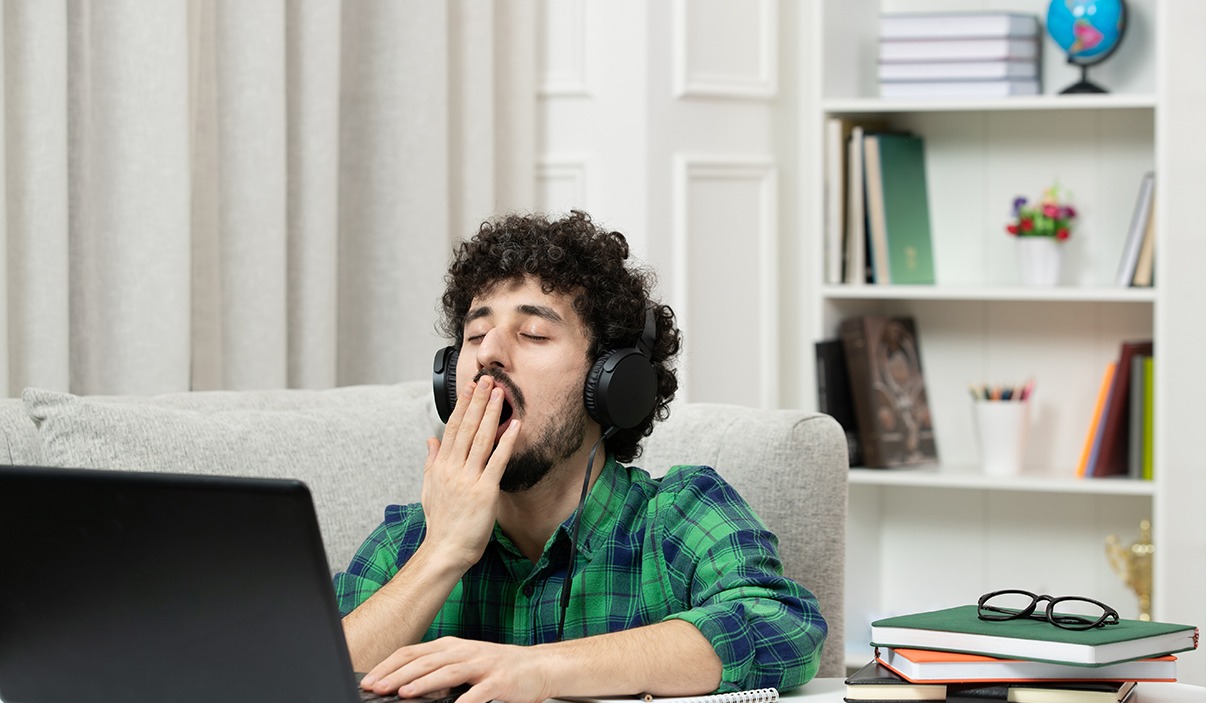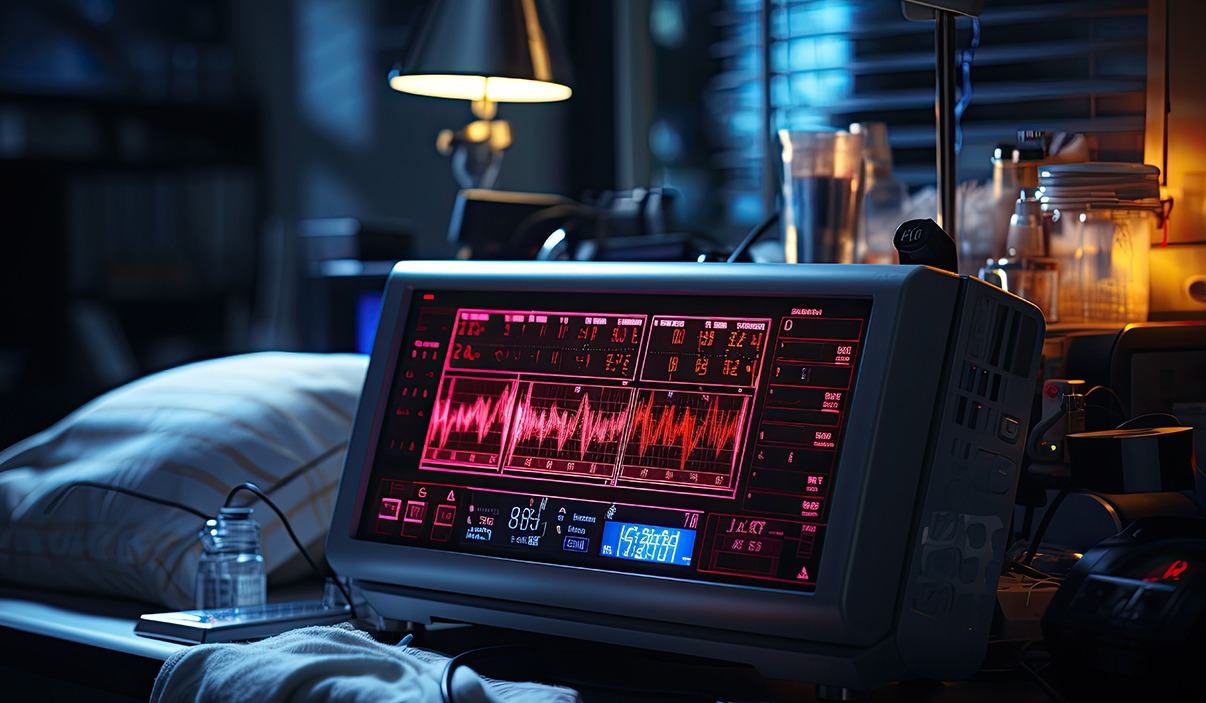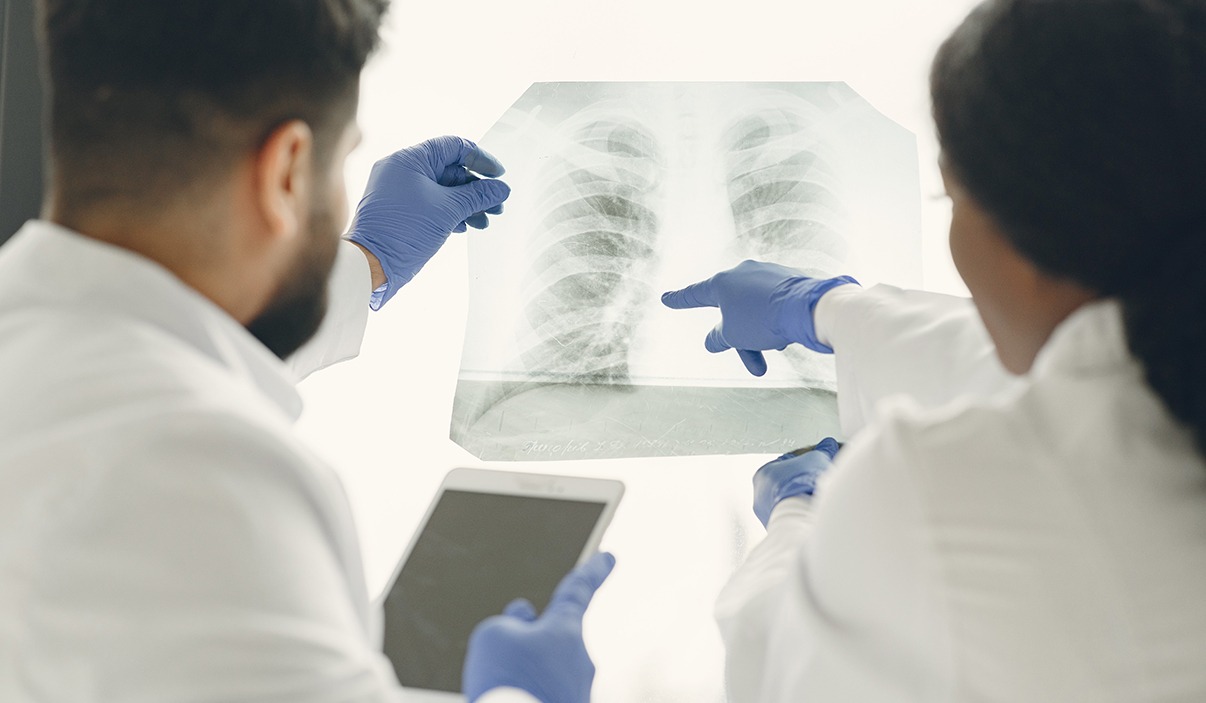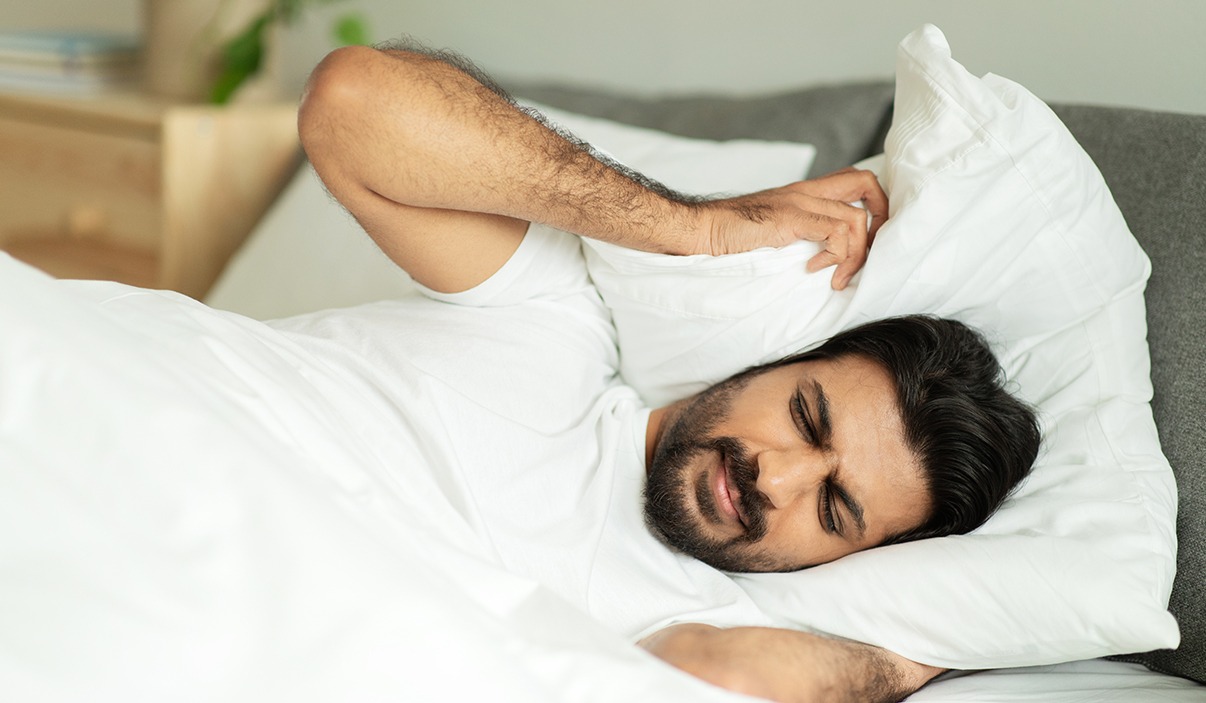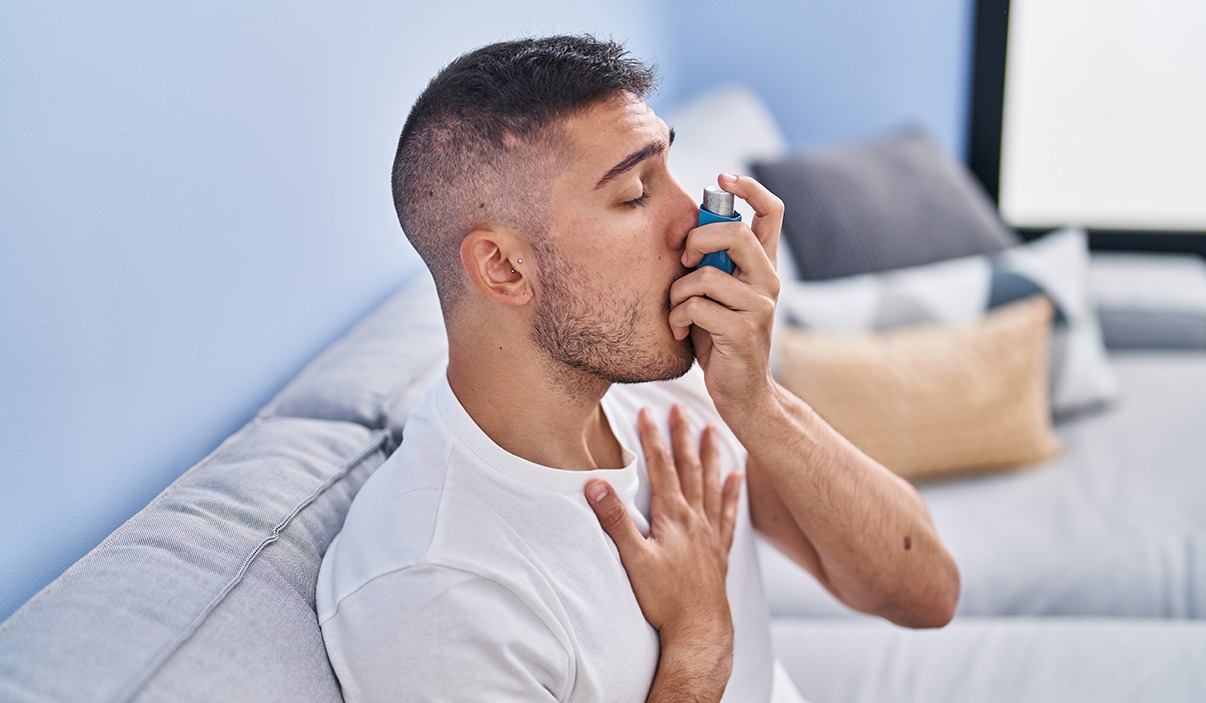- +91 8921713940
- 3rd Floor, Mamson Prime, Kunnumpuram, Edappally, Ernakulam
Sleep Study
- Home
- Sleep Study
Sleep Study
Sleep disorders can significantly affect your health and well-being. Whether you’re struggling with insomnia, sleep apnea, or snoring, getting the right diagnosis and treatment is essential. At Apex Pulmonology, we specialize in providing advanced sleep studies that help identify and manage various sleep-related issues, particularly those associated with respiratory conditions such as asthma and COPD.
What is a Sleep Study?
A sleep study, also known as polysomnography, is a comprehensive diagnostic tool used to monitor various physiological functions during sleep. It helps identify disruptions such as sleep apnea, snoring, insomnia, and other sleep disorders. By analyzing data from sensors attached to the body, a sleep study provides valuable insights into your sleep patterns, breathing, heart rate, and muscle activity, helping doctors to determine an accurate diagnosis and recommend effective treatments.
Types of Sleep Studies
- Polysomnography (PSG): The most common and comprehensive sleep study that monitors brain waves, oxygen levels, heart rate, and breathing during sleep.
- Home Sleep Apnea Testing (HSAT): A simplified version of a sleep study done at home, typically for diagnosing sleep apnea.
- Multiple Sleep Latency Test (MSLT): A test to assess daytime sleepiness and diagnose conditions like narcolepsy.
Why Choose Apex Pulmonology for Your Sleep Study?
At Apex Pulmonology, we provide comprehensive and patient-centered sleep studies, conducted under the guidance of experienced pulmonologists. Our sleep study services are tailored to individuals suffering from sleep apnea, insomnia, and other pulmonary sleep disorders. With state-of-the-art equipment and a team of highly trained professionals, we ensure the most accurate and comfortable experience for our patients.
What sets us apart?
- Expert Pulmonologists: Our team of respiratory specialists is highly experienced in diagnosing and treating sleep disorders, particularly those related to respiratory conditions like asthma, COPD, and pulmonary diseases.
- Comfortable & State-of-the-Art Facility: Our sleep study lab is equipped with advanced technology to monitor your sleep with the highest degree of precision. You’ll feel comfortable and at ease during the entire process.
- Comprehensive Diagnosis: We go beyond just diagnosing sleep disorders. Our specialists also assess how underlying pulmonary issues may be affecting your sleep and overall health.
- Personalized Care: Every patient is different. We provide customized treatment plans based on your unique diagnosis.
How Does a Sleep Study Work?
A sleep study is a painless, non-invasive process that typically takes place overnight in a sleep clinic. Here’s what you can expect:
- Pre-Study Preparation:
- You’ll be asked to avoid caffeine or heavy meals before the study.
- Our team will explain the entire process, answer any questions, and ensure you’re comfortable with the procedure.
- We’ll provide you with a sleep kit and help you prepare for your study.
- The Sleep Study Process:
- You’ll be comfortably settled in a private, quiet room designed to simulate your home sleeping environment. We will attach small sensors to your body that monitor your brain waves, heart rate, breathing, and muscle activity.
- These sensors are painless, and they’ll not interfere with your sleep.
- Our team will monitor your sleep patterns from a nearby control room to ensure that everything is working correctly.
- What Data is Collected? During a sleep study, the following factors are monitored:
- Brain activity (EEG) to measure sleep stages.
- Oxygen levels (pulse oximetry) to identify breathing issues like sleep apnea.
- Heart rate (ECG) to monitor heart function during sleep.
- Breathing patterns (respiratory effort) to detect issues like snoring or apneas.
- Muscle activity (EMG) to identify restless leg syndrome or teeth grinding.
- Post-Study Evaluation:
- After your sleep study, our specialists will analyze the data collected and provide a comprehensive report.
- We’ll schedule a follow-up consultation to discuss your results, potential diagnoses, and treatment options.
Conditions We Diagnose and Treat
At Apex Pulmonology, we specialize in diagnosing and treating a wide range of sleep disorders, particularly those linked to respiratory conditions. Our expert pulmonologists use the latest diagnostic tools, including sleep studies, to identify the root causes of your sleep disturbances and provide targeted treatment plans.
Common Sleep Disorders We Diagnose and Treat:
- Sleep Apnea
- What It Is: A disorder where your breathing repeatedly stops and starts during sleep, leading to poor-quality sleep and a variety of health complications.
- Symptoms: Loud snoring, gasping for air, daytime fatigue, difficulty concentrating.
- Treatment: CPAP (Continuous Positive Airway Pressure) therapy, BiPAP, lifestyle changes, weight management, surgery (in severe cases).
- Insomnia
- What It Is: Chronic difficulty falling asleep or staying asleep, leading to daytime fatigue and mood disturbances.
- Symptoms: Trouble falling asleep, waking up frequently at night, waking up too early, daytime drowsiness.
- Treatment: Cognitive Behavioral Therapy for Insomnia (CBT-I), medication, sleep hygiene practices, relaxation techniques.
- Restless Leg Syndrome (RLS)
- What It Is: A condition that causes uncomfortable sensations in the legs and an irresistible urge to move them, especially during rest or sleep.
- Symptoms: Sensations of crawling or itching in the legs, difficulty relaxing before sleep, urge to move the legs.
- Treatment: Lifestyle changes, medications, iron supplementation, and leg massage.
- Narcolepsy
- What It Is: A neurological disorder that affects the brain’s ability to regulate the sleep-wake cycle, leading to excessive daytime sleepiness and sudden sleep attacks.
- Symptoms: Extreme daytime fatigue, sudden episodes of sleep, cataplexy (loss of muscle tone triggered by strong emotions).
- Treatment: Stimulant medications, antidepressants (for cataplexy), scheduled naps, sleep hygiene improvements.
- Circadian Rhythm Disorders
- What It Is: Disorders that affect the timing of sleep, such as delayed sleep phase disorder (DSPS), advanced sleep phase disorder (ASPS), or shift work sleep disorder.
- Symptoms: Difficulty falling asleep at the desired time, frequent waking during the night, difficulty staying awake during daytime hours.
- Treatment: Light therapy, chronotherapy, melatonin supplements, lifestyle adjustments.
- Snoring
- What It Is: A common condition where the sound of your breathing is loud and harsh during sleep, caused by the vibration of the throat tissues.
- Symptoms: Loud snoring, disturbed sleep for the person snoring and their partner.
- Treatment: Sleep position therapy, weight loss, CPAP therapy (if sleep apnea is present), surgery (in severe cases).
- Sleep-Related Breathing Disorders (Other than Sleep Apnea)
- What It Is: Conditions where breathing is interrupted during sleep, but does not necessarily fit the criteria for sleep apnea.
- Symptoms: Shallow breathing, pauses in breathing, difficulty getting restful sleep.
- Treatment: CPAP, BiPAP, oxygen therapy, and lifestyle changes.
- Other Respiratory-Related Sleep Disorders
- What It Is: Sleep disruptions caused by underlying pulmonary conditions such as asthma, COPD, or pulmonary fibrosis.
- Symptoms: Nighttime coughing, wheezing, shortness of breath, fatigue.
- Treatment: Pulmonary rehabilitation, inhalers, CPAP/BiPAP, medications.
What Happens After the Sleep Study?
After your sleep study, our pulmonologists will carefully review the data and determine the most appropriate course of action based on the diagnosis. Depending on the findings, we might recommend one or more of the following treatment options:
- CPAP or BiPAP Therapy for sleep apnea.
- Lifestyle and Behavioral Changes for managing insomnia and other sleep disturbances.
- Pulmonary Rehabilitation if your sleep disorders are related to respiratory issues like asthma or COPD.
Follow-up Sleep Studies to track the effectiveness of treatments.
Book Your Sleep Study Today
At Apex Pulmonology, we are committed to helping you get the restful sleep you deserve. If you’re experiencing symptoms like snoring, daytime fatigue, or difficulty sleeping, it’s time to book a sleep study with us.
Contact us today to schedule your consultation and take the first step toward better sleep and improved health!
FAQ About Sleep Study
While a referral from your physician may be necessary, our team can assist you with scheduling and guide you through the process.
The sleep study typically lasts overnight, and you'll be able to sleep through the entire procedure.
No, the sensors are non-invasive and do not cause pain. They are applied gently to the skin and will not affect your ability to sleep.
After the sleep study, our team will schedule a follow-up appointment to discuss your results and provide treatment recommendations.

